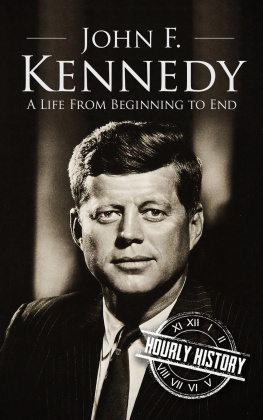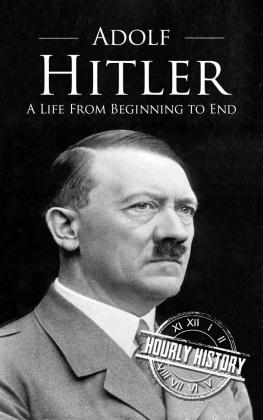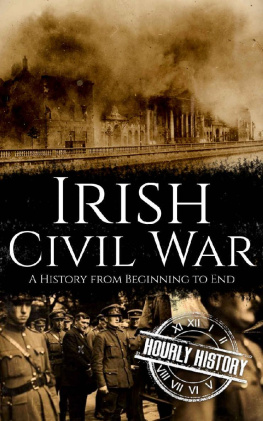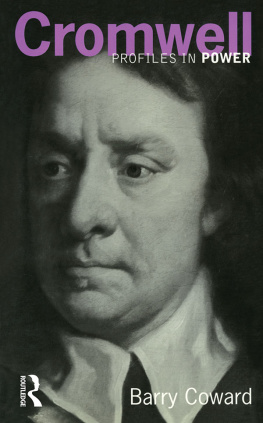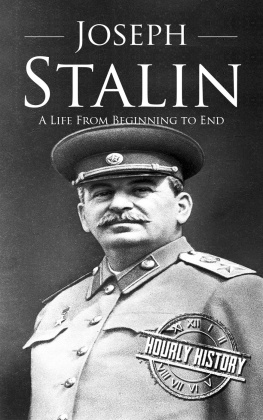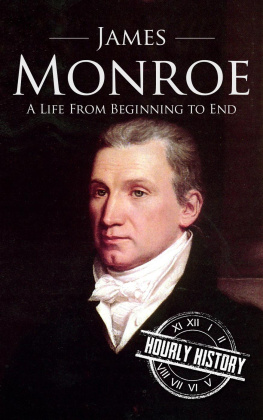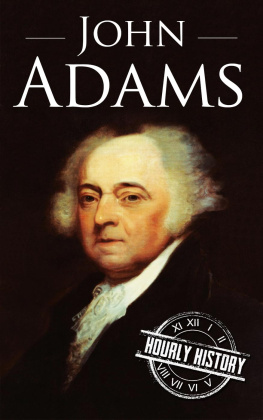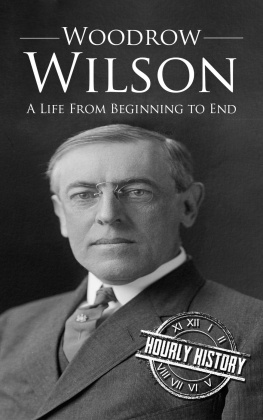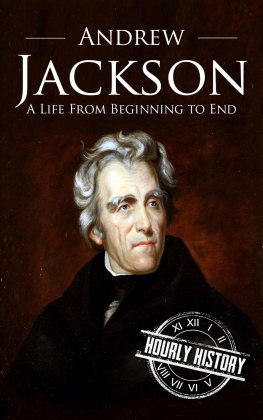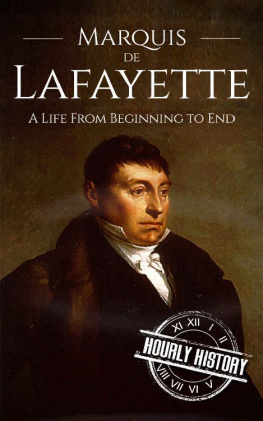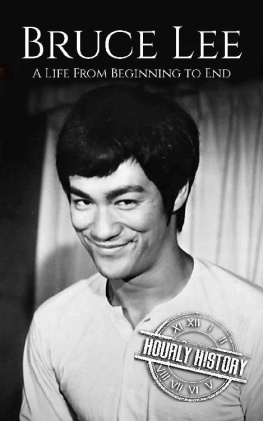Hourly History - Oliver Cromwell: A Life From Beginning to End
Here you can read online Hourly History - Oliver Cromwell: A Life From Beginning to End full text of the book (entire story) in english for free. Download pdf and epub, get meaning, cover and reviews about this ebook. year: 2016, publisher: Hourly History, genre: Politics. Description of the work, (preface) as well as reviews are available. Best literature library LitArk.com created for fans of good reading and offers a wide selection of genres:
Romance novel
Science fiction
Adventure
Detective
Science
History
Home and family
Prose
Art
Politics
Computer
Non-fiction
Religion
Business
Children
Humor
Choose a favorite category and find really read worthwhile books. Enjoy immersion in the world of imagination, feel the emotions of the characters or learn something new for yourself, make an fascinating discovery.

- Book:Oliver Cromwell: A Life From Beginning to End
- Author:
- Publisher:Hourly History
- Genre:
- Year:2016
- Rating:3 / 5
- Favourites:Add to favourites
- Your mark:
- 60
- 1
- 2
- 3
- 4
- 5
Oliver Cromwell: A Life From Beginning to End: summary, description and annotation
We offer to read an annotation, description, summary or preface (depends on what the author of the book "Oliver Cromwell: A Life From Beginning to End" wrote himself). If you haven't found the necessary information about the book — write in the comments, we will try to find it.
Oliver Cromwell: A Life From Beginning to End — read online for free the complete book (whole text) full work
Below is the text of the book, divided by pages. System saving the place of the last page read, allows you to conveniently read the book "Oliver Cromwell: A Life From Beginning to End" online for free, without having to search again every time where you left off. Put a bookmark, and you can go to the page where you finished reading at any time.
Font size:
Interval:
Bookmark:
Copyright 2016 by Hourly History.
All rights reserved.
Oliver Cromwell is one of the most controversial figures in British history. Born into a fairly wealthy family, Cromwell entered the world as a privileged member of the English gentry. By the time he reached his thirties Cromwells life seemed ordinary in practically every way. A married man with a growing brood of children, Cromwell looked after his mother, made his living looking after a farm for a time, and was loosely involved in local politics. From this obscurity, Cromwell transformed himself into a radical and notorious figure, one of the most powerful men England had ever seen in both military and political circles.
Cromwell underwent a religious conversion in the 1630s that became the motivating factor behind everything he achieved throughout the rest of his life. A self-styled Moses and fanatical Puritan, Cromwell believed that he had been entrusted with the task of reforming religious life in England under the authority of God himself. Cromwell abolished Christmas and abhorred Catholicism, dedicating his life to restoring the simple, Puritan modes of worship that he believed represented the only true Christian faith.
Cromwell is also one of the most effective military commanders in the history of modern Europe. Under his command, Parliament was able to defeat the King in the First English Civil War. The thing Cromwell is most remembered for is his role in bringing about the shocking regicide of King Charles I, who was beheaded in front of Whitehall Palace. Cromwell signed King Charles Is death warrant, and just a few years after destroying the monarchy moved his family into Whitehall Palace and ruled much like a king himself.
Abolishing the monarchy to pave the way for major reforms to the constitution, Cromwell ended up destroying when he took up parliaments offer of becoming the Lord Protector of England, Scotland, and Ireland. With almost absolute power Cromwell adopted the lifestyle of a monarch, despite his own hatred of the monarchy, and adopted an aggressive foreign policy that raised the status of England to that of a leading European power once more. Cromwells attempt to personally control the military and to implement regional Major Generals led many to accuse him of turning England into a military dictatorship, but many others celebrated him as a hero of liberty and the rightful leader of England, Scotland, and Ireland.
It seems unbelievable that one man could have had such a monumental impact on what is now the entirety of Great Britain and the Republic of Ireland, and yet it is so. Love him or loathe him, Oliver Cromwell changed the political landscape in England and beyond, and occupies a unique place in British history.
Oliver Cromwell was born on the 25th April 1599, the fifth child of Robert Cromwell and Elizabeth Steward. Robert and Elizabeth had ten children altogether, seven girls and three boys, but Oliver was the only boy to survive into adulthood; he eventually became the heir and head of the Cromwell family. Cromwell is often described as having been born into humble circumstances, but he was born into one of the greatest families in the county of Huntingdonshire. Robert Cromwell was a distant relation of the Tudor royal family and was descended from Katherine Cromwell (1482-unknown), the older sister of Henry VIIIs infamous minister Thomas Cromwell.
By the time Oliver Cromwell was born, the extended Cromwell family were already major landowners. The Cromwells accrued their wealth during the sixteenth century when they acquired church land sold off after the Reformation - the same Reformation that relative Thomas Cromwell had helped make happen, thanks to his incredibly close but turbulent relationship with Henry VIII. The Cromwell family were at one time one of the ten wealthiest families in Huntingdon; Olivers grandfather and uncle were both knighted, known as Sir Henry and Sir Oliver respectively. The Cromwells also had alliances with many other rich and powerful families in East Anglia, thanks to strategically-planned marriages between them.
Oliver Cromwell came from rich and successful stock, but as his father, Robert, was a younger son with many siblings, his own close family were in possession of fairly modest means. As Cromwell himself made clear in 1654, I was by birth a gentleman, living neither in considerable height, nor yet in obscurity. By the early 17th century, the Cromwell family fortunes were beginning to take a turn for the worse. Sir Oliver Cromwell, Oliver Cromwells uncle, was the head of the family and known for living well beyond his means. Sir Olivers mismanagement of the familys property and finances saw him selling off a large chunk of land around the time Oliver was born.
Oliver was baptized on the 29th of April 1599 at St Johns Church and grew up with his seven sisters in the family home in Huntingdon. Between the years of 1610 and 1616, Cromwell attended the local Huntingdon Grammar School before leaving for Sidney Sussex College in 1616. Cromwells time in London was short-lived, and he never got his degree. In 1617, Cromwells father Richard died suddenly, and Cromwell was forced to return to Huntingdon to manage the family estates and act as the head of the household for his mother and seven sisters.
The next major event of Cromwells early life was his wedding in August 1620 to a lady named Elizabeth Bourchier. Elizabeth was the daughter of a Sir James Bourchier, a successful London businessman and property owner in Essex. Its unclear how Cromwell and Elizabeth met, but it has been suggested that they were distantly related. Cromwell and Elizabeth were married at St Giles-without-Cripplegate Church on Fore Street in London, and by all accounts, the marriage was a happy one.
More importantly, the marriage was a beneficial one - it put Cromwell in close contact with leading figures in the London merchant community, who in turn held influence over the Earls of Warwick and Holland. These familial and friendly links would mean little to Cromwell during the first years of his marriage but prove to be instrumental to the success of his later military and political career. While living with Cromwells family in Huntingdon between 1621 and 1631, Elizabeth Cromwell gave birth to seven children. However, in 1632, the final child born during this period, James, sadly died in infancy.
The death of his seventh child is thought to have contributed to what some historians have referred to as Cromwells crisis or breakdown. While living in Huntingdon, Cromwells income and social standing were probably the lowest they had ever been. In 1628 Cromwell was elected to represent Huntingdon in Parliament, but he never exerted the level of influence over local politics that he desired. His time in Huntingdon ended badly when he became involved in a dispute amongst the gentry of the town caused by disagreements over how to spend a pot of money that came to the town in the form of a bequest. There were two distinct sides to the disagreement, and Cromwell supported the losing one.
In 1630, Cromwells adversaries obtained a royal charter banning him and his supporters from power, a charter Cromwell protested against so aggressively he was briefly imprisoned. This political crisis, which saw Cromwell humiliated in his hometown, combined with a downturn in his personal finances, exacerbated his already poor health. Around the time of his son James death, Cromwell had sought medical treatment for a number of health complaints, including depression.
Font size:
Interval:
Bookmark:
Similar books «Oliver Cromwell: A Life From Beginning to End»
Look at similar books to Oliver Cromwell: A Life From Beginning to End. We have selected literature similar in name and meaning in the hope of providing readers with more options to find new, interesting, not yet read works.
Discussion, reviews of the book Oliver Cromwell: A Life From Beginning to End and just readers' own opinions. Leave your comments, write what you think about the work, its meaning or the main characters. Specify what exactly you liked and what you didn't like, and why you think so.

